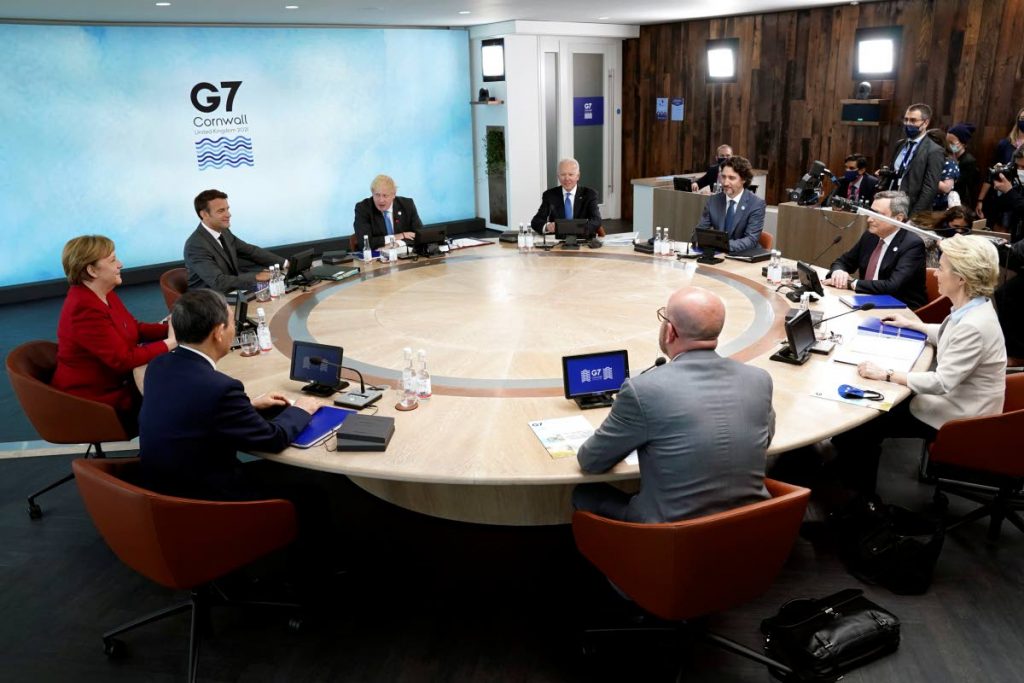Unpacking the worrying G7 tax deal

kmmpub@gmail.com
The G7 tax deal could be very damaging for developing countries if we don’t make our voices heard quickly.
There are lots of headlines, but let’s break this down. First, this isn’t a global agreement. The goal is to eventually expand the net of this agreement to include other countries, tax havens like Ireland, Switzerland, the Bahamas or the Cayman Islands. That will take a while.
The biggest news has been a general agreement that no country will tax corporations less than 15 per cent.
But arguably the bigger change is the proposal to change tax rules so that multi-national companies will have to pay more of their corporation tax based on where they make most of their sales, rather than where they produce their goods or services.
This tax plan is politically opportunistic in the short term for rich countries that want to be seen to be sticking it to big tech like Google or Facebook, which are seen as paying too little tax in countries outside of the United States.
But if fully implemented, this will be a disaster for resource producing countries. In TT, for example, BP, Shell and their subsidiaries would have to pay more taxes in the countries where they book their gas sales: think Japan or South America, and less in the places where they produce their gas, ie TT.
The losses from this might be slightly offset by an increase in taxes from companies selling products to TT, but it will certainly by a significant net loss. It is easy to see how poorer developing countries, which are more likely to be dependent on resource extraction and exports will be disproportionately hit by this.
This new plan is both unfair and inefficient. If a company has the great majority of its producing operations in one country and is benefiting from that country’s public services, isn’t it fairer that that company should pay more corporation tax in that country?
Then there are there sheer number of complications. It would have to be truly multinational to work, involving changing legislation and accounting rules in dozens of countries, likely leading to mass confusion and disputes between businesses and revenue authorities. These are ripe conditions for more – not less – tax avoidance loopholes.
How, for example will companies, especially big tech, keep track of where their customers are on a continuous basis and how will this be reported to tax authorities in multiple countries?
If countries want to capture more tax from being lost to loopholes, there are still plenty of ways. Companies can, for example, change where they sign customer contracts or continue with transfer pricing across jurisdictions that offer indirect subsidies and incentives, regardless of broader global agreements.
The UK’s Chartered Institute of Taxation among others have been talking about this for the last four years, but that seems to have gone on deaf ears.
What about the actual purpose of these taxes, to rein in internet companies? According to their annual reports, both Google and Facebook report effective tax rates of just over 20 per cent. Could be more, sure, but that is hardly the daylight robbery most reporting would have you believe.
As baffled as tax authorities seem to be by internet companies' sales and operation, they are operating under the same principles as cross-border companies with interlinked supply chains have done for hundreds of years.
If countries want to capture more of the value that is being sold in their countries from big tech or others, there is a simple solution already exists: a value added tax. Of course, value added taxes are rarely politically popular. The optics are rarely good as most voters resent paying more for goods and services. But charging corporation tax based on sales will ultimately have the same effect, with the added downside of hurting producer countries.
Now there are some definite pluses to the deal for governments the world over, namely that it will be more difficult for companies to conduct paper transactions with affiliates in lower tax jurisdictions to minimise their tax payments – the so-called “transfer pricing” that our government has long battled the energy sector on. With a 15 per cent global threshold, the odds of this will go down. But that’s no reason to not challenge the bad parts of the deal.
Small states like ours rarely have much leeway in these types of negotiations. We should join forces with other countries, through multi-lateral organisations like Caricom and the IDB, alongside larger developing countries like India and South Africa, to make our voices heard and stand up for a just tax policy.
Kiran Mathur Mohammed is an economist and co-founder of medl, an IDB lab-backed social impact health tech company


Comments
"Unpacking the worrying G7 tax deal"